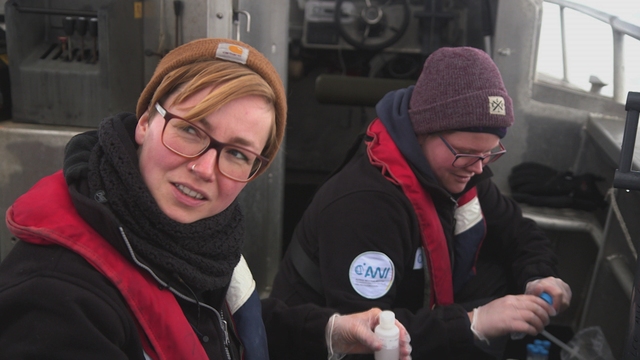Spitzberg: The Frontline of Climate Change
Life on a research base at the end of the world
 Deep within the Arctic Circle lies the Svalbardian research town of Ny-Ålesund. Home to a unique international community of scientists, this is the remote front line of the global climate change debate.
Deep within the Arctic Circle lies the Svalbardian research town of Ny-Ålesund. Home to a unique international community of scientists, this is the remote front line of the global climate change debate.
Halfway between Greenland and Norway lies the beautiful island of Spitzberg. While we hear about the changing climate, in Spitzberg they see it. The snowbound village of Ny-Ålesund is one of only four human communities settled here, home to 160 researchers from fifteen countries between March and October. "All our meals are taken together, breakfast, lunch and dinner", says Piotr Kupieszewski, a Franco-Polish researcher who also manages the needs of the scientists. This includes radio and weapons training, as the researchers count wild polar bears as their neighbors. "Here it's a peculiar life. The conditions can be a little austere for people that aren't used to it", says glacier expert Florian Tolle. He comes to the base twice a year to measure human impact on the polar environment, collaborating with an international team to map the topography. For the 10th of 11 years, the results are negative. Local datasets show the average temperatures have raised 1.7°C in 25 years, twice that of the global average. "All our industrial production, our infinite usage of energy and power, has altered our life system and has consequences all around the globe", says Tolle.
FULL SYNOPSIS

